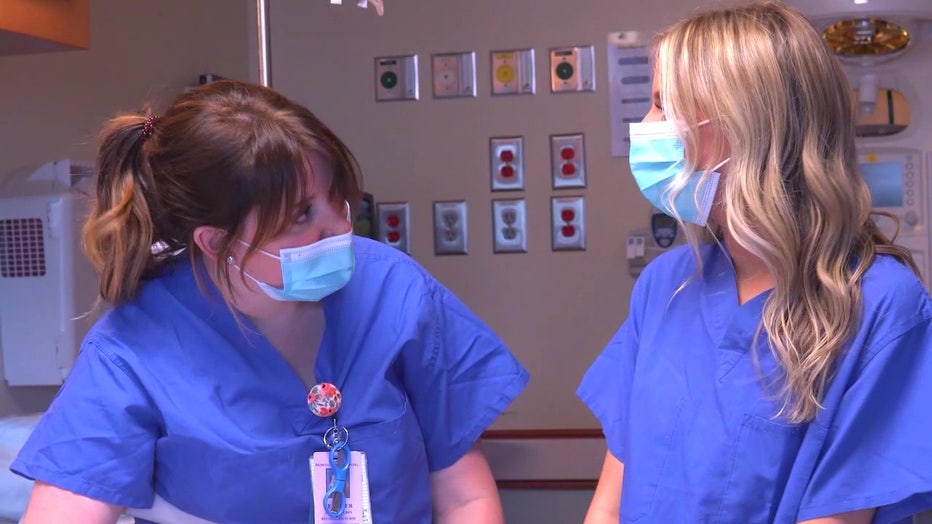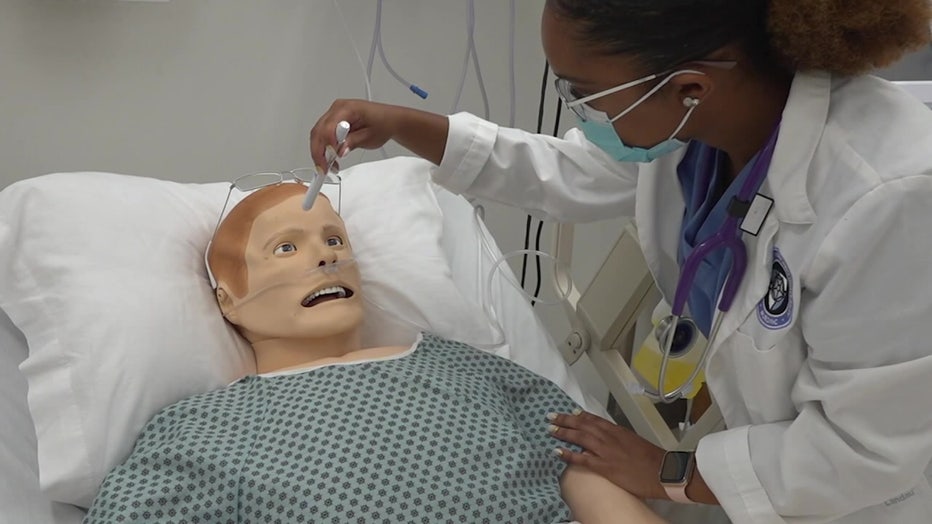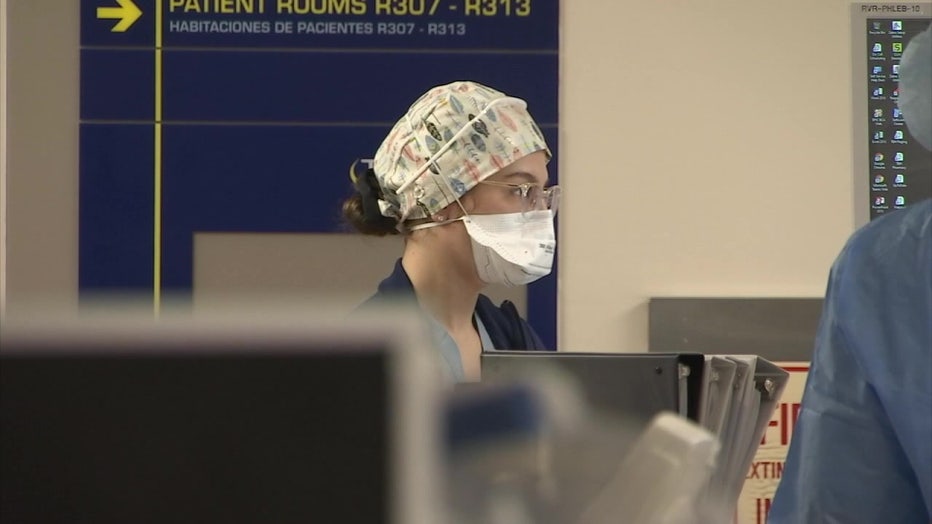USF programs prepares students, keeps nurses in Florida
TAMPA, Fla. - After three of the hardest years on healthcare workers, fewer nurses are leaving their jobs in Florida according to a new report from the Florida Hospital Association.
"We were seeing unprecedented turnover rates last year, 32 percent turnover rate, a vacancy rate of 21 percent. The great news is that in just a short 12 months, we have dramatically improved," said Mary Mayhew, the president and CEO of the Florida Hospital Association.
According to the 2023 FHA Workforce report, the state’s turnover rate for healthcare workers is down from 32 percent to 20 percent, and the vacancy rate is down from 21 percent to 13 percent.
"Both the vacancy and turnover rates have decreased by 38 percent, and we lead the country in our progress in improving our retention of our staff and our recruitment of our staff," said Mayhew.

The pandemic made the existing nurse shortage worse. And now that things are stabilizing, the worker pipeline is still lacking.
"That demand is still very much increasing. So, we want the educational system and the investments in our educational system to align with where the workforce demands are, and especially in this case, in health care," said Mayhew.
That’s where colleges and universities like University of South Florida come in. Its college of nursing started accelerated programs to get students out in the field faster, and USF professors said it’s working out well.
READ: TGH, USF residency program hopes to recruit anesthesiologists and keep them in the Bay Area
"A bigger challenge I think we're facing as nursing schools is ensuring that these amazing students that we graduate stay in our area," said Usha Menon, the dean of the USF College of Nursing and senior associate vice president at USF Health.
Tampa General Hospital recently invested $4.4 million at USF to build a new simulation lab, and Menon said that will allow nursing students to be able to learn from the latest technology.

"As artificial intelligence becomes more embedded and integrated into higher education, we need to be able to test those things. We need to see if this is the right thing for our students to do," said Menon.
Part of the problem is making sure young nurses are prepared to deal with the stress and are resilient in the job, which are subjects the FHA report highlights.
READ: Groundbreaking RSV vaccine facing major shortages
"It is a difficult career. It's not the easiest career. Most of us do it because we care so deeply about those patients and those families," said Menon. "It's a calling in many ways. It sounds trite, but it truly is for us."
Colleges are working with hospitals to ease nursing students into the workplace.

"These academic practice partnerships allow us to really ease the student into professional practice instead of in a protected student environment one day, and then tomorrow we say, here, go," said Menon. "It just is not a good environment for them to be in."
Healthcare leaders think opportunities can start even earlier.
READ: Sarasota Police Department gives high school students surprise gift
"There are many health care programs that can be brought into the high school age group where they will graduate and be a certified nursing assistant and can immediately go to work with that certification," said Mayhew. "We do want to explore more opportunities for those partnerships as well, work with the legislature to incentivize those types of programs that lead to really strong career pathways."
According to an FHA analysis, there are more than 59,000 nurses needed in Florida by 2035, so every step to fill those gaps counts.
FHA said worker retention is improving, and hospitals need to do more to cater to every generation of nurses, from those just starting out to nurses who have decades under their belts. Some hospitals are even using remote job opportunities for nurses through 24/7 at-home monitoring systems.


